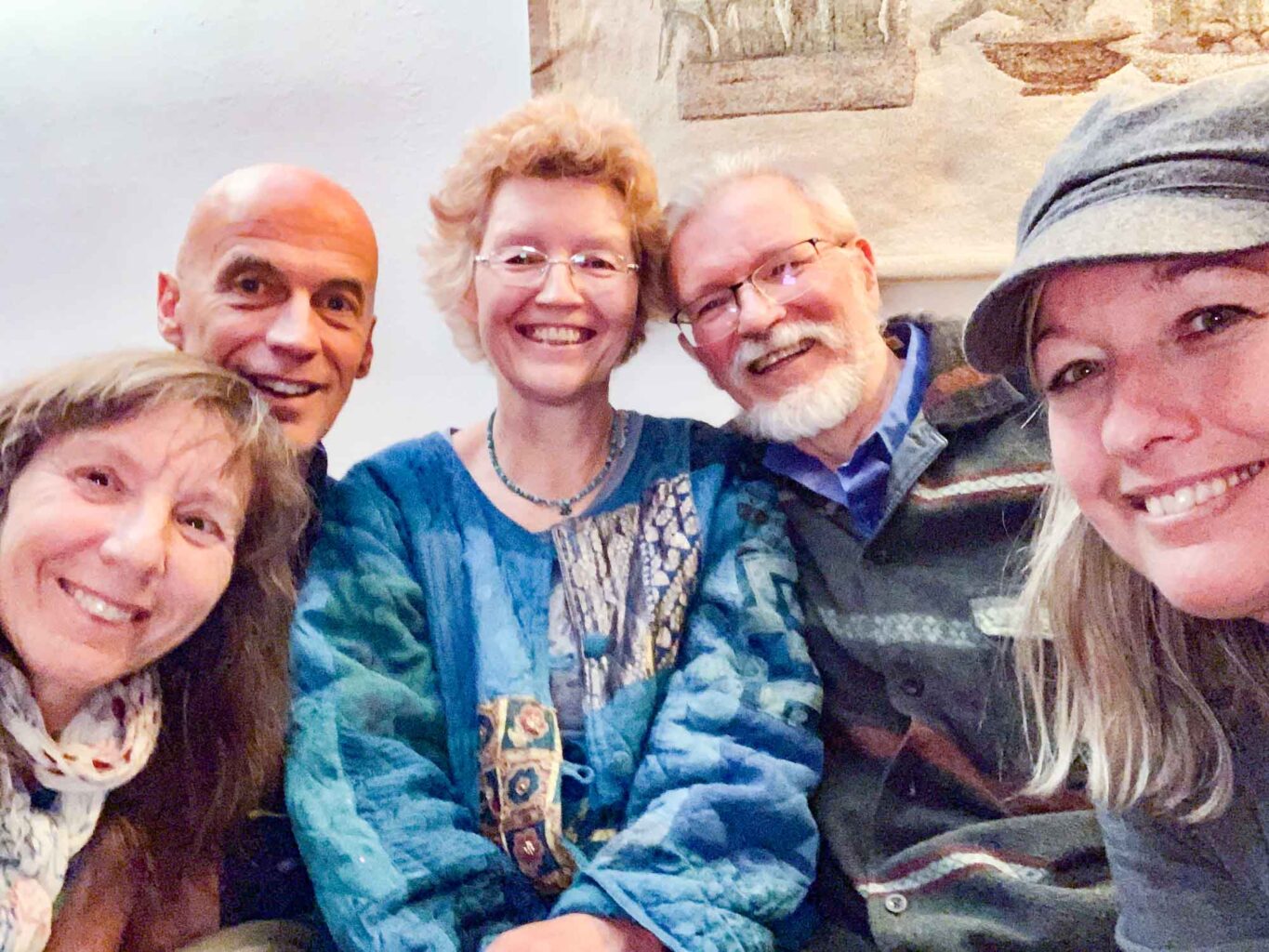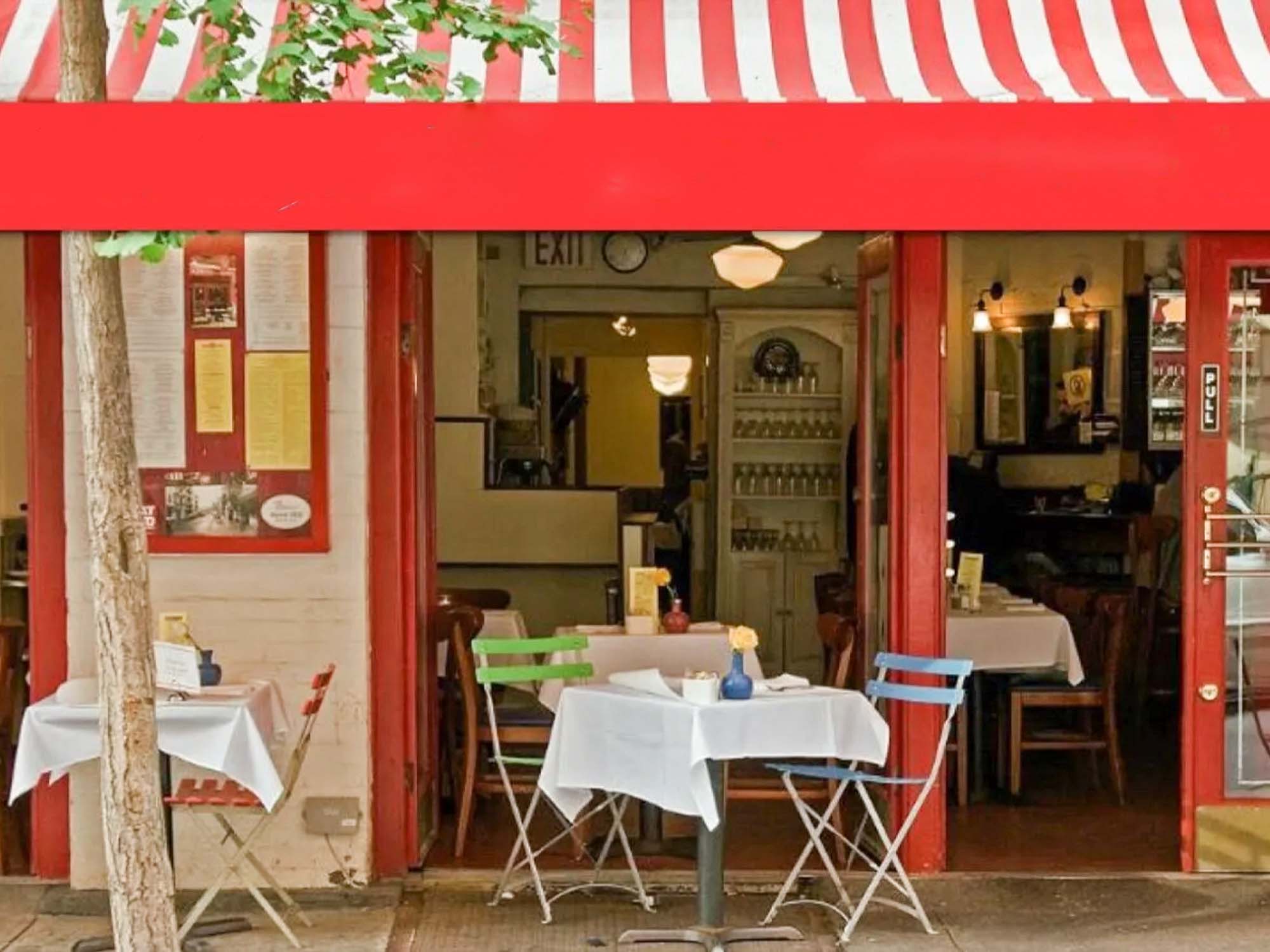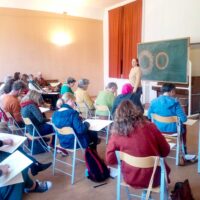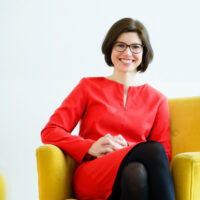Tom Altgelt and Jamie York created the Front Range Anthroposophical Cafe (FRAC) in March 2020 in Boulder, Colorado, USA. Their mission, which was to provide an online venue for meaningful and inspired conversation in light of anthroposophy, has sustained itself over time. This interview explores how a social initiative that emerged from the restrictions of the pandemic has grown over the past three years. Questions by Laura Scappaticci.
What is the impulse that brought FRAC about and how has it grown overtime?
Jamie On March 13, 2020, I was in Montana at my son’s ski race. One day life was normal and the next day it was complete pandemonium. It quickly became clear to us what the consequences of the pandemic would be, not the least of which would be social. My wife Karen is very intuitive. She woke up one morning with the insight that we needed to find a way for anthroposophists to continue to connect and have meaningful conversations. I was running a Math Academy on Zoom to connect home-school students, so I was familiar with online classroom technology. Karen and I asked ourselves who could lead a social space online and Tom Altgelt immediately came to mind. He had led meaningful face-to-face studies in the past and helped within our community, and we called him and asked if he was willing.
Tom I had recently turned down a study group on ‹How to Know Higher Worlds› when they asked if we could continue on Zoom. I said: «No way! That’s not the same as getting together in person.» But then I had a change of heart and the conversation about the cafe was built with great enthusiasm. We had an idea of bridging in the larger area, including Denver, Boulder, Fort Collins, and a few other places, calling it ‹The Front Range›. In the beginning it was just a small group of Colorado people, and then very quickly it exploded into a much bigger context. We never anticipated that. But it obviously met the needs of a lot of people who couldn’t get together in groups. Even when people can once again get together face-to-face, Friday night is still a time to get together in the online cafe.
Jamie Our first official meeting was April 10, 2020. We acted pretty quickly. We were all suffering from the trauma of this sudden separation. I was really worried about people living alone who would be completely isolated. A good deal of our participants are elderly people who live on their own and the cafe is a big part of their social life. The first meeting was focused on the question ‹How are we coping with this?› For the second meeting we brought in an anthroposophical doctor, Adam Blanning, MD, who talked with us about what the pandemic meant from his medical perspective.
How did you grow the audience and where are they joining you from?
Tom We never conceived of it growing as it did. It switched from being a local group to being larger through inviting people with very large lists of contacts. People like Brian Gray and others. They let the people on their lists know they were speaking at FRAC and then more people joined our community. People come from all over the US, Canada, Taiwan, New Zealand, Australia, India. People listen to the recordings in Europe. We also have over two and a half years of recordings available on our site. In the next few months, we will be launching Saturday sessions, accessible to those in Europe.
Why did you call it ‹Cafe›?

Jamie When I picture cafes, I picture Europe and small cafes and the Vienna Circle. In my wife’s career, which is centered around death work, there is something called a Death Cafe where people come together and share their experiences about a deeply personal topic. So the name came from there.
What is the format of each gathering?
Jamie We had a vision from the beginning and have had very little need to change it. Tom shares ‹The Calendar of the Soul› and lights the candle, then we have a presenter for 30 minutes, then small group discussions. The Cafe is not a place for lecturers to give a talk for an hour and a half. It’s not that. We have a good 25 minutes of break-out time for people to talk in small groups. Often those break out groups are led by key questions, but you are placed with random people. It used to be that when the break-out rooms started people would leave the meeting, but now more and more people stay. The format has been quite good and consistent.
How many people attend each time?
Tom At the live meetings, we have about 50-80 people logged in and about one-third of those are couples. So easily 100 or more. But many more people listen to the recordings.
If you had advice for someone trying to create a cafe like this, what would you say?
Jamie Don’t let the presentations go for too long. A 30-minute talk is just right. Don’t cut into the social time.
Tom The presenters appreciate that they are giving leading thoughts. I asked one of the presenters to do a presentation for 15 minutes and he resisted, but then he thanked me and said: «I did something I didn’t believe could be done.» Also, think big. Don’t be shy about inviting someone you have never met. Just call. The standard reply is «I’d be honored to speak at your café.»
Image source Front Range Anthroposophical Café






It´s Saturday morning in the Philippines and we very much appreciate the format as the amazing cast of contributors. We have often blackouts and also a lot of work to do, so unfortunately, we can´t join often. But big, big thanks for this wonderful initiative.
I lived in Boulder for many years, but Dorothea and Tom were parents at the Shining Mt. Waldorf School,where I too was a parent. It is heartwarming to realize they and Jamie and his wife have created something so inspiring from the chaos of pandemic and turned the computer into a most welcome vehicle for Anthroposophists who are not able to easily connect with other Anthroposophists. Thank you for being there for us and for your valuable website with many past sessions recorded that we can listen to. What a terrific gift of your intellect and wills. Thank you.